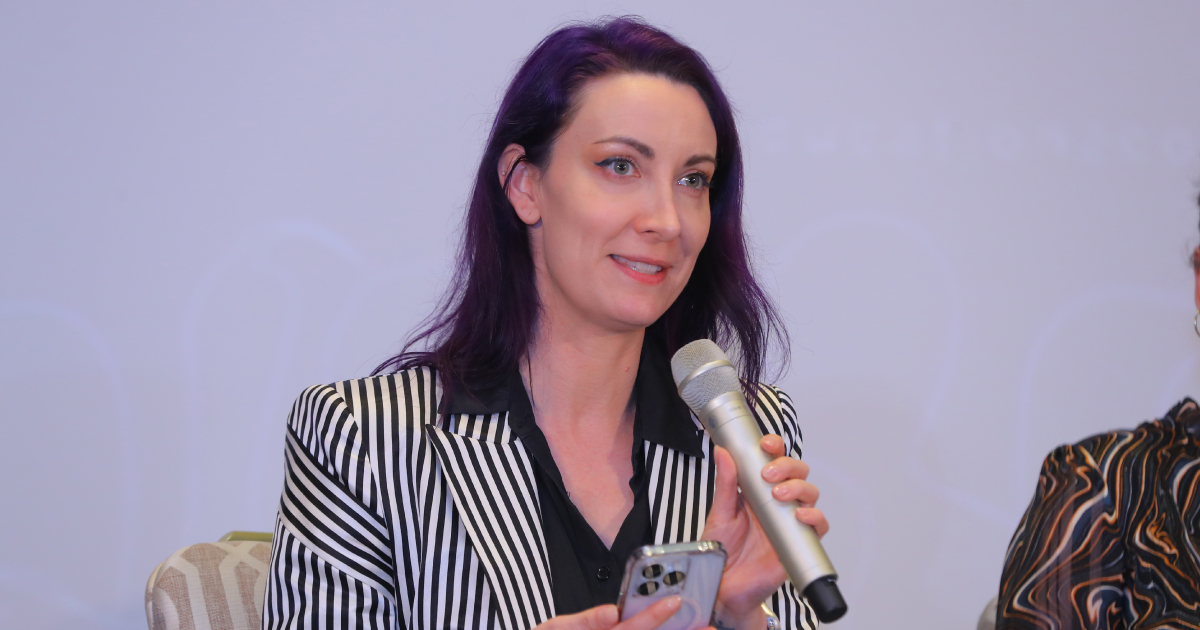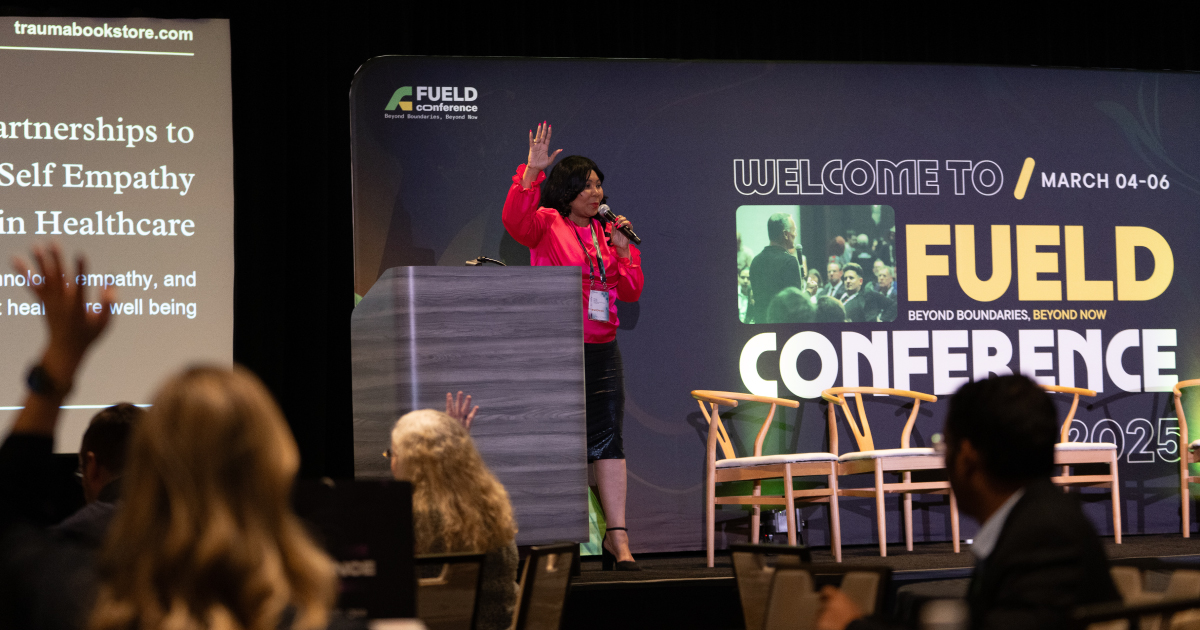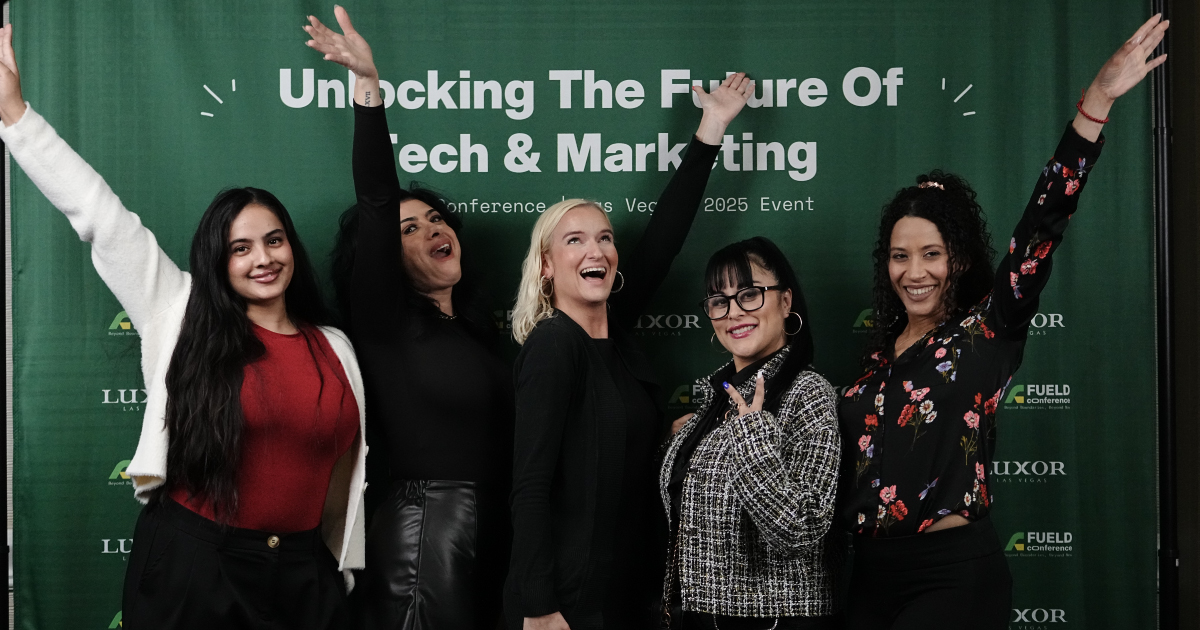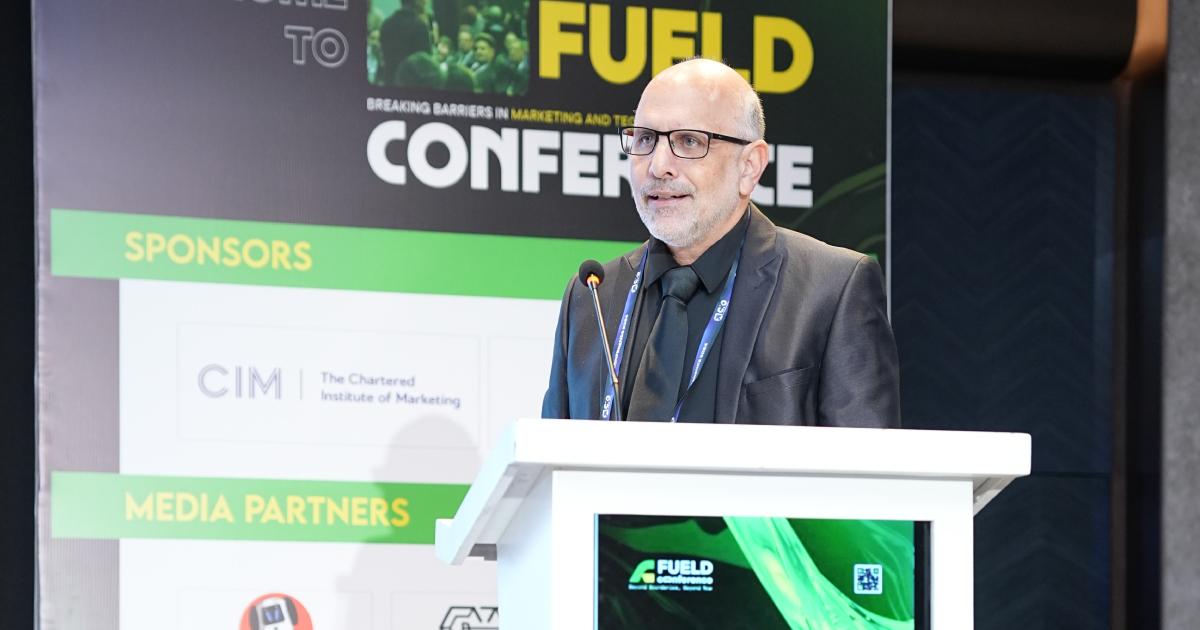Posted on : October 23, 2025

What if artificial intelligence is never meant to replace people but to help them think more clearly, create more freely, and decide more wisely? AI tools are no longer optional extras; they are becoming central to daily work. But does embracing AI mean giving up control, or does it open the door to thinking, deciding, and creating at an entirely new level?
At our FUELD Conference, this shift from novelty to necessity took center stage. Innovators and business leaders explored what it means to move from automation toward proper augmentation during the session “From Artificial Intelligence To Becoming Intelligence Amplified.” This discussion echoed findings from a Microsoft and LinkedIn report, which showed that 75% of global knowledge workers now use AI at work, with nearly half adopting it in the past six months.
The panel at our 2025 AI and tech summit in Dubai featured Dr. Sam Sammane, Founder & CEO of TheoSym Corp.; Eric Bolinder, CEO & Founder of Kich Data AB; and Ahmed M. Ammar, VP of Labs. Each shared distinct insights on how individuals, businesses, and educators benefit when AI supports human judgment instead of replacing it. They argued that intuition, emotional intelligence, and contextual awareness must remain central if AI is to deliver better outcomes.
Rethinking AI’s Role With FUELD Conference Experts
Sam opened the discussion by pointing out that nearly 70 percent of professionals now use generative AI tools such as ChatGPT. However, he noted that these tools, while impressive, are not yet true business applications. He compared AI to a wild horse that needs guidance, suggesting that humans must moderate its output to ensure it delivers value in real situations. For Sam, the real opportunity lies in creating a feedback loop where people initiate the process, AI generates possibilities, and human judgment selects the best path forward.
Eric agreed that AI works best as a partner rather than a replacement. He explained that ChatGPT’s public launch marked what he calls “year zero” for this new era. After his first experience with the tool, he immediately began thinking about how to improve its usability and integrate it into platforms designed for real-world work. For Eric, AI should function like a helpful assistant or tutor, offering suggestions that humans can shape into final decisions.
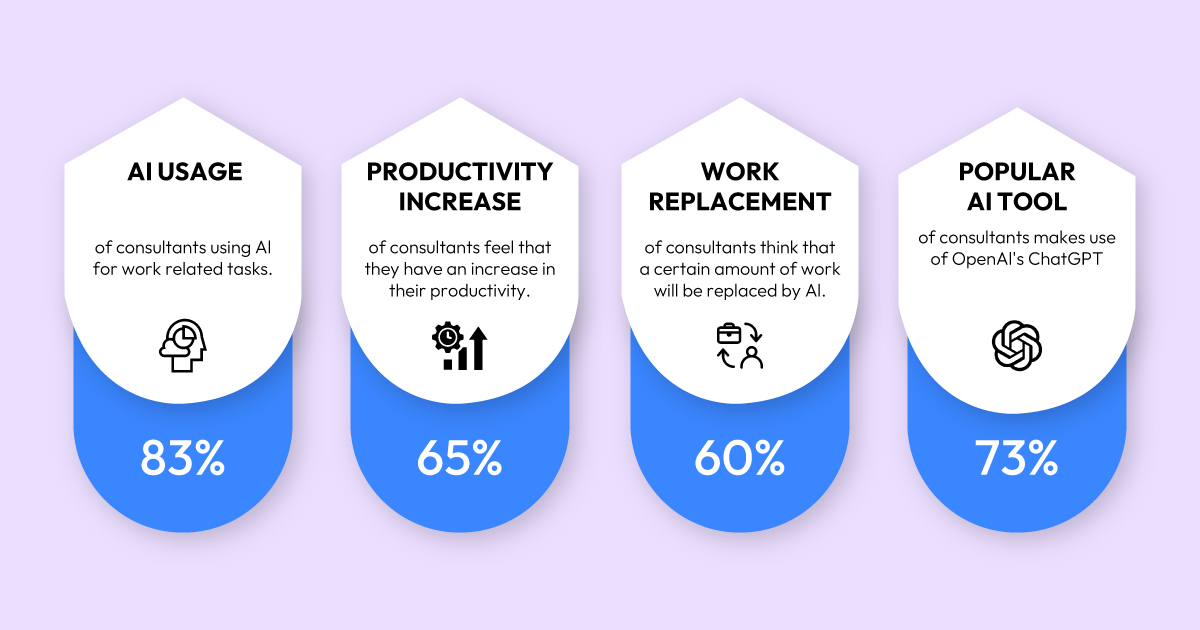
From Raw Data To Human Judgment
Humans learn in a way that machines cannot, Sam reminded the audience. He described how passion accelerates learning and said that intuition allows people to make decisions even when data is incomplete. This ability, which he refers to as “human AI augmentation,” forms the foundation for intelligence amplification. When people combine their intuition with AI’s data-driven suggestions, they can achieve more accurate and timely results.
At our AI conference, Ahmed supported this point by explaining how context and experience play a crucial role in the effective use of enterprise AI. He noted that in many corporate settings, AI experiments fail not because the technology is weak but because they lack the human oversight needed to ensure quality. Business decisions require accuracy, speed, and security, which means AI must work within controlled systems guided by people who understand both the data and the industry.
Bringing AI Into Everyday Workflows
At our FUELD Conference, Eric encouraged businesses to think of AI the way they once thought of the internet in its early days: as a tool that will soon become indispensable. He said organizations should start experimenting now so they are ready to scale when the technology matures further. In his view, AI can complete as much as 85 percent of a task, but the final refinement still requires human judgment and context.
Ahmed took a practical approach, describing how integrating AI into ERP systems can help maximize profits, improve operational efficiency, and turn raw data into meaningful insights. He stressed that the quality of AI output is only as good as the experts guiding it, which makes proper implementation and oversight essential. Without expert input, he warned, AI risks producing results that are technically correct but operationally useless.
How Schools Show The Way Forward
Personalized learning stood out as one of the most compelling use cases for intelligence amplification. Sam described a model he calls a double feedback loop: one AI system helps teachers design lessons, while another adapts the material in real-time for each student. This approach, he argued, enables students to learn in the way they naturally prefer, whether through visual, auditory, or hands-on learning.
At our AI conference, Eric shared that AI can lower teacher stress by acting as multiple tutors in a single classroom. This allows every student to receive individual attention, enabling teachers to focus on motivation, creativity, and building strong relationships. For Eric, this demonstrates how AI can amplify the reach of educators rather than replace them.
Creativity & Connection Still Matter
AI may be able to generate a large number of ideas, but Sam argued that it is humans who decide which ones truly resonate. He shared a story from a friend in the music industry who used AI to generate full songs but noted that the human touch was still necessary to decide which compositions would emotionally connect with listeners. This, Sam said, is where intelligence amplification happens: the machine produces, and the human curates.
Ahmed, who has a background in music, agreed that human intuition plays a critical role in evaluating creative outputs. At our AI conference, he explained that even when AI generates technically flawless material, experienced creators can sense when something feels wrong or overly mechanical. This sensitivity, he said, is what ensures that creative work remains meaningful and relatable.
Building Trust And Setting Boundaries
Eric reflected on how the adoption of AI today feels like the early days of the internet. Risks are present, he said, but society will develop ways to manage them while continuing to innovate. He encouraged professionals to spend time each day learning about AI so they stay ahead of change and remain competitive as the technology evolves.
Sam reminded the audience that leaders must approach AI with humility. There are aspects of human intelligence, such as hope, intuition, and creativity, that cannot yet be fully coded into algorithms. During this segment at our FUELD Conference, he called on businesses to focus on amplifying human strengths, designing systems where AI remains guided by people, and ensuring that decision-making stays rooted in human values.
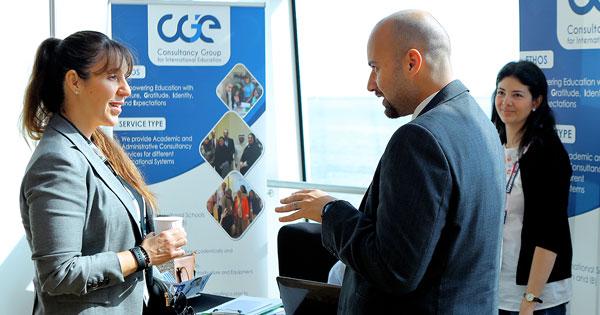
Looking Toward A Smarter Future
AI will be both a challenge and a helper, Ahmed said, much like the internet today. He predicted that society will have to strike a balance between technology and human connection, ensuring that automation serves people rather than isolates them. Businesses that find this balance, he argued, will be the ones that thrive.
Closing the session at our tech and marketing summit, Eric struck an optimistic tone, predicting that AI will become as common and transformative as the internet once was. He encouraged the audience to start experimenting now, reminding them that being early adopters will help them stay ahead of the competition and be better prepared for the next wave of disruption.
Key Insights From The Panel
The panel made one thing very clear: AI is most powerful when it amplifies human intelligence instead of trying to replace it. When people stay informed, technology becomes a tool for making sharper decisions, learning faster, and achieving more meaningful outcomes.
At our FUELD Conference, this idea sparked discussion about embedding AI into enterprise workflows with strong governance and expert oversight. Education was highlighted as a model for success, showing how AI can personalize lessons while allowing teachers to focus on motivating and inspiring students.
Speakers also reminded attendees at our 2025 AI and tech summit in Dubai that intuition and creativity are still essential. They help filter AI-generated options, turn data into wisdom, and ensure solutions stay aligned with human values. The conversation concluded on an optimistic note, encouraging leaders to continue learning, establish clear guardrails, and utilize AI as a partner in building a brighter future.
FAQs
Q1. How does intelligence amplification differ from simple AI automation?
A. Intelligence amplification combines AI’s ability to process data quickly with human judgment and context. Unlike automation, it empowers people to remain in control, utilizing AI as a partner to make informed decisions.
Q2. Can small businesses also benefit from intelligence amplification?
A. Yes, small businesses can integrate AI into marketing, operations, and customer service to save time and gain insights. When guided by owners and managers, these tools help improve efficiency without losing the personal touch.
Q3. What role does emotional intelligence play in AI adoption?
A. Emotional intelligence ensures that AI solutions consider human impact. Leaders who combine empathy with technology adoption create systems that serve people rather than overwhelm them.
Q4. Who usually attends the FUELD Conference?
A. The FUELD Conference attracts a diverse mix of C-level executives, entrepreneurs, technologists, investors, researchers, and innovators from across industries. Attendees come together to share insights, explore partnerships, and discover strategies that drive growth and digital transformation.
Q5. Where is the FUELD Conference usually held?
A. The FUELD Conference chooses cities known for innovation and global business appeal. Recent editions have been hosted in Dubai and Las Vegas, bringing together leaders and changemakers from around the world to share insights and build connections in dynamic settings.







